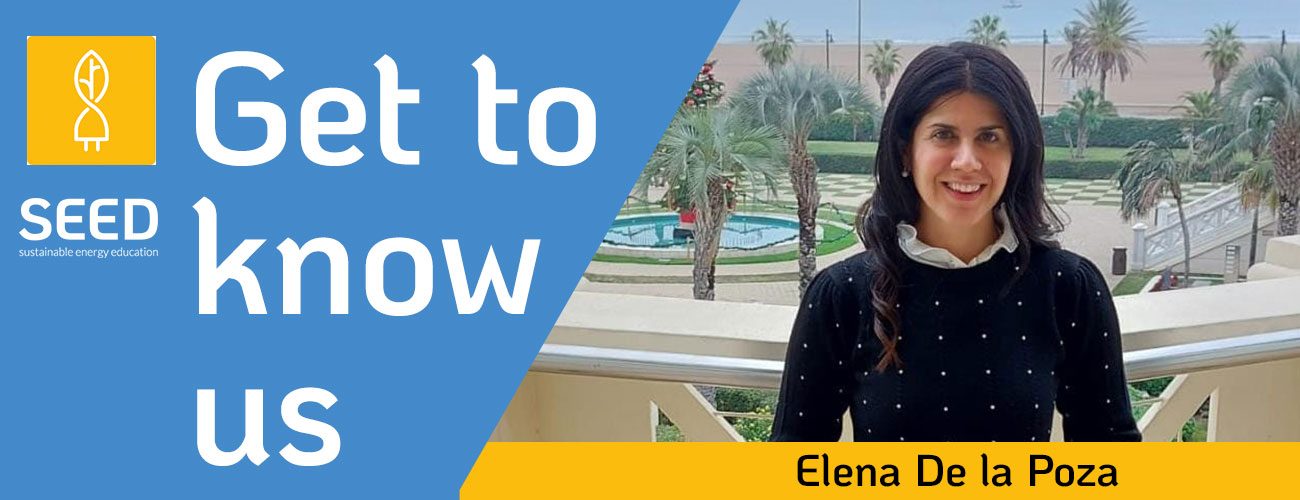Prof. Elena de la Poza, Project Manager at Universitat Politècnica de València, shares her thoughts about the project. Her motivation? It’s simple—she’s all about making her region, the Valencia Community, greener and more sustainable. Don’t miss out that interview!
What motivated you to get involved in the SEED project?
The opportunity to collaborate in improving my region, the Valencia Community, and thus promote the transition to a greener, more sustainable society. As a researcher and lecturer, I know the need to rethink our behavior, production, consumption, and investment models.
The Universitat Politècnica de Valencia (UPV), the institution I represent, is very clear about its involvement in the sustainable development of its local environment. Specifically, our strategic plan, Plan SIRVE UPV 2027, proposes strategic goals directly aligned with the COVE SEED project: decarbonize our environment, develop alliances with social institutions and public administrations, and consolidate the reputation and leadership of the UPV in social transformation. Without a doubt, participating in SEED is part of our/my roadmap.
What are your expectations for the project?
The ultimate objective of this project is to create a learning community on renewable energies in the Valencian Community through the consortium formed by the renewable energy industry of the Valencian community and the renewable energy education sector represented by the UPV and the General Directorate of Vocational Training and Special Regime Education in which through a process of continuous improvement we maintain a constant dialogue with the renewable energy industry to adapt training, at any level to the needs that it claims.
How do you think the project can contribute to developing the regional CoVE?
The opportunity to learn from other regions, which in some areas may be more evolved, such as in funded collaboration between public educational entities that train qualified professionals at different levels of the European training scale. Thus, knowing their experiences, their process, and the instruments other regions use will allow us to quickly plan the strategy to develop our COVE, our continuous learning community. It is about progressing regionally and learning from each other through exchanging and transferring knowledge.
On the other hand, there is no doubt about the importance of the budget to develop COVE in our region. Without the funds the program provides us, carrying out these actions would be very difficult.
A unique characteristic of this project is that the Universities join the vocational training centers; we work hand in hand and organizationally. Beyond individual actions, for example, on February 14, 2017, the vocational center of Benicarló invited us to participate in the 1st Renewable Energy Conference they organized. Without hesitation, Dr. Natividad Guadalajara, Director of the Economic Engineering Center of the UPV, and I went there to tell our experience and bring it to the students of professional training our research activity. At that time, I was responsible for an educational project financed by funds from the European Institute of Innovation and Technology.
Now, we can generate impact on a larger scale and join forces with the leading agents in the renewable energy sector: renewable energy companies and accredited entities at the European and national levels participating in the renewable energy educational process.
How do you think the project can benefit the local economy?
The local economy will undoubtedly benefit from the creation and development of the COVE. To the extent that the educational sector knows first-hand the skills that the industry will need in the future, not just those required today, it will be possible to improve current educational programs, provide graduates with the tools to be competitive in the work environment and provide solutions to the complex challenges of the society of the future.
While developing the project, the UPV was very clear that the Valencian Association of Renewable Energy Companies (AVAESEN) had to be present and participate in the project since companies are, without doubt, the main engine of the regional economy. One of the hallmarks of the UPV is its relationship with the industry and the transfer of knowledge to it and the local environment. This is a partnership that offers only profits to both parties. The sustainable development of COVE makes sense only through collaboration with companies, and the more, the better. Small and medium-sized companies with limited resources characterize the Valencian business fabric. However, their innovative nature and talent are, and the energy sector is no exception. It is necessary to support companies; therefore, the more that are part of COVE SEED, the better.

